Bronze Age gold theft 'like punch in the stomach'
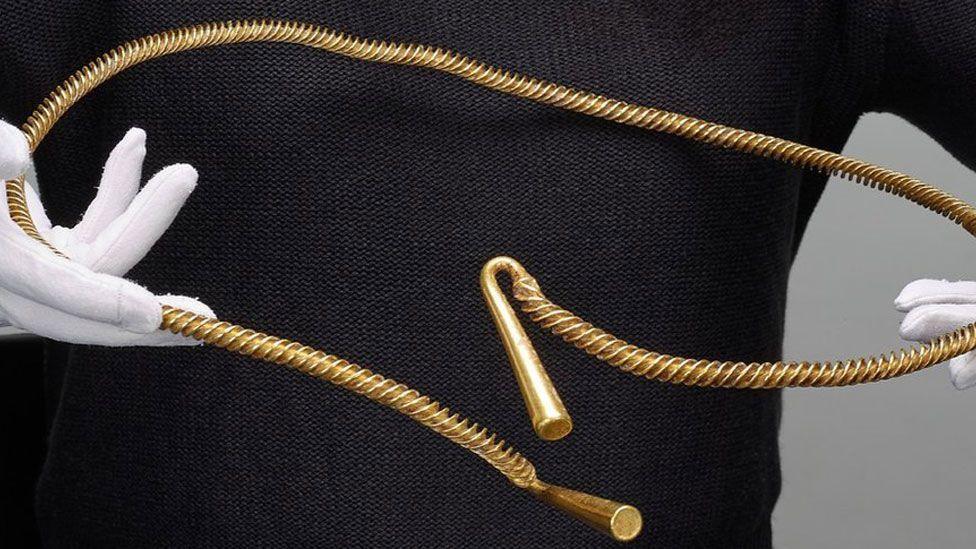
The 126.5cm (4ft 15in)-diameter gold torc is "one of the most important Bronze Age finds that's ever been made in England"
- Published
City residents have described the theft of two Bronze Age gold objects from their museum as "like being punched in the stomach or chest".
The torc, which Ely Museum bought for £220,000 in 2017, and a bracelet were stolen during a break in at the museum on 7 May, which triggered an alarm alerting the police.
Curator Elie Hughes said residents had shared with her a "very emotional response" to the loss of the items, both of which were discovered locally.
Cambridgeshire Police said its investigation is ongoing.
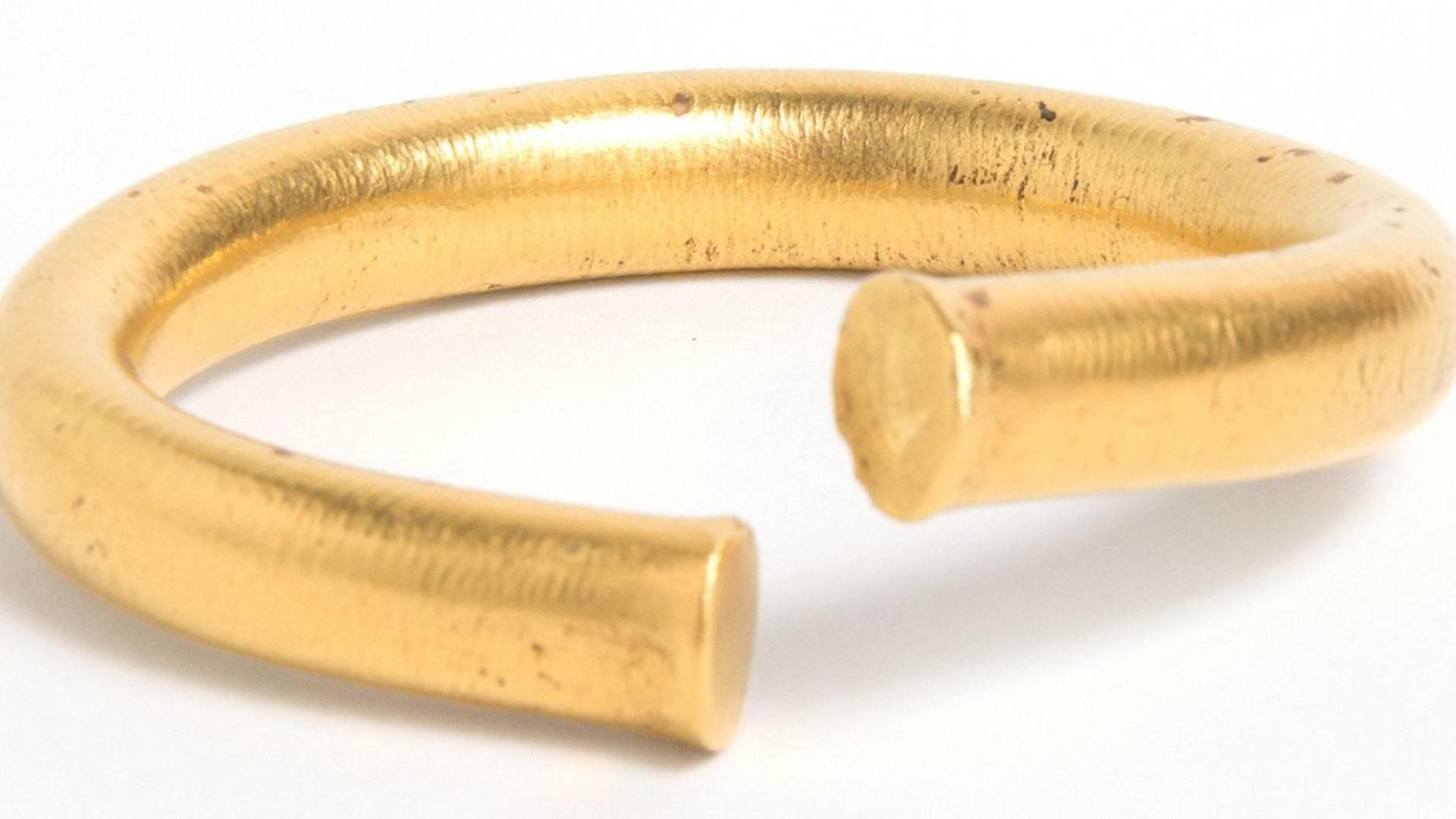
It was discovered in the Ely area by a metal detectorist, as was the ancient gold bracelet which the thieves also stole
Ms Hughes said: "The response has been quite powerful with people saying the news was like being punched in [the] stomach or chest, it really feels personal and that is an unusual reaction to museum objects.
"They are the star objects that give that real wow factor to the museum.
"We have lots of really interesting objects, but the fact that gold doesn't tarnish means that despite being thousands of years old they look like new."
The very large 3,000-year-old gold torc was made from 730g (1lb 10oz) of gold and was one of the centre pieces of the museum, which reopened in 2021 after a £2.2 million refurbishment.
It was described as "one of the most important Bronze Age finds that's ever been made in England", by Dr Neil Wilkin, from the British Museum.
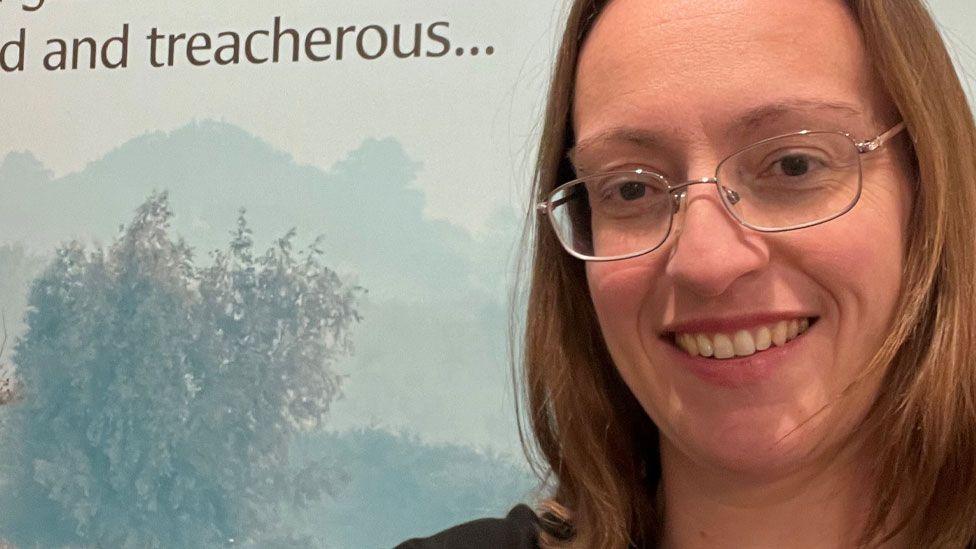
The items were "star objects" for the museum, said curator Elie Hughes
It has been 50 years since Queen Elizabeth II officially confirmed Ely's city status by granting the letters patent to the civil parish in April 1974.
The museum's young curators, 12 students from Ely College aged 12 to 16, have put together an exhibition called Our Ely at 50, external to mark the event.
Ms Hughes said: "Ely had changed so dramatically in terms of housing, the changes at the Princess of Wales Hospital site, the closure of the sugar beet factory.
"And for our young curators, the closure of the Sessions House [the former magistrates' court] in 2011 is history - while the annual Eel Festival, set up 20 years ago, has always been there."
The torc was discovered by a metal detectorist in 2015, external and if it had been found 50 years earlier, it would probably have been acquired by a national museum.
Instead the item and the bracelet were displayed in Ely as part of the area's unique history.
"If it had gone to Cambridge or London, many Ely people would never have gone there to see it," said Ms Hughes.
"We were so grateful to have that opportunity to share the object and we one day hope to see get it back."
Follow Cambridgeshire news on Facebook, external, Instagram, external and X, external. Got a story? Email eastofenglandnews@bbc.co.uk, external or WhatsApp us on 0800 169 1830
- Published7 May 2024
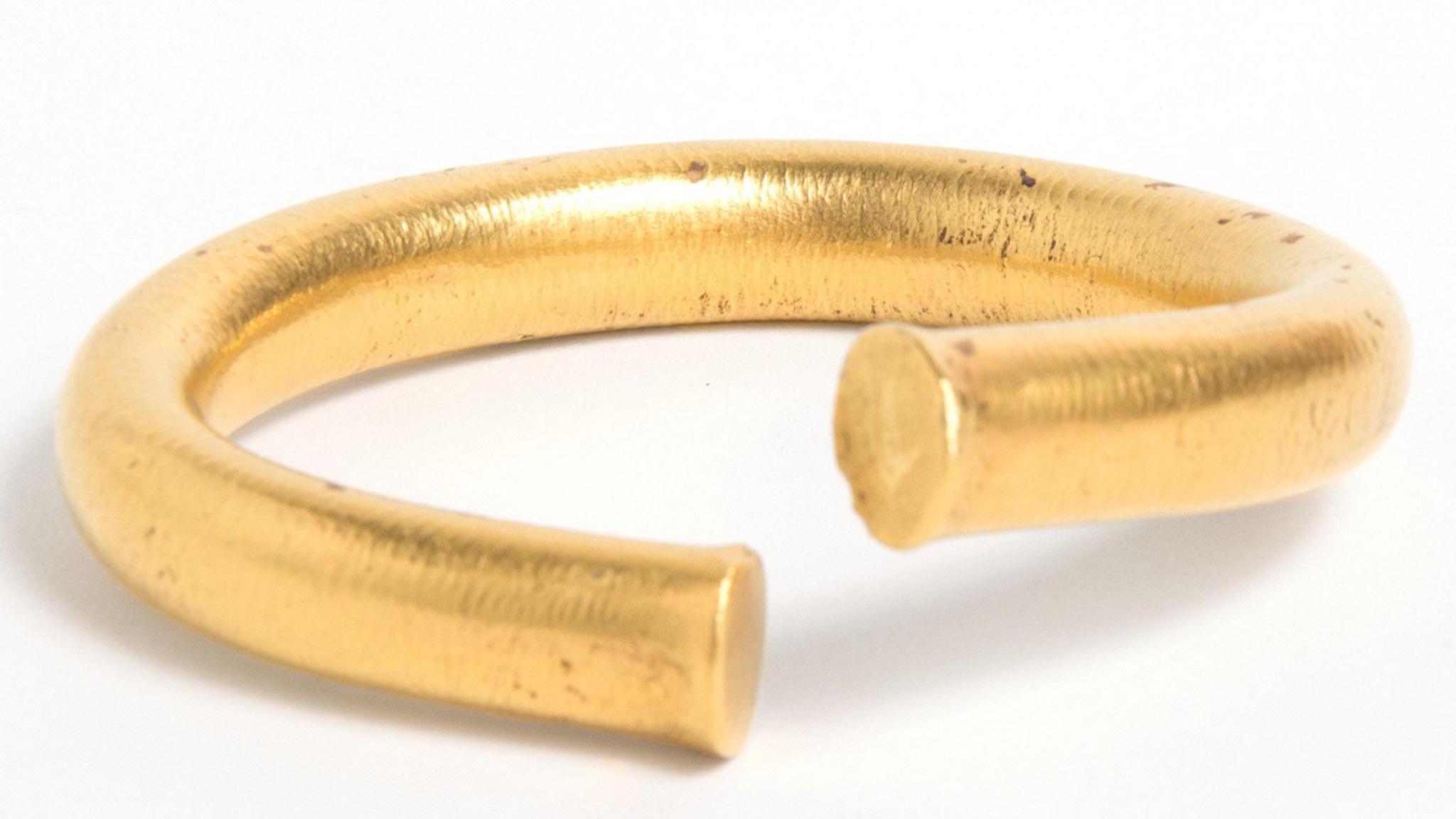
- Published7 October 2017
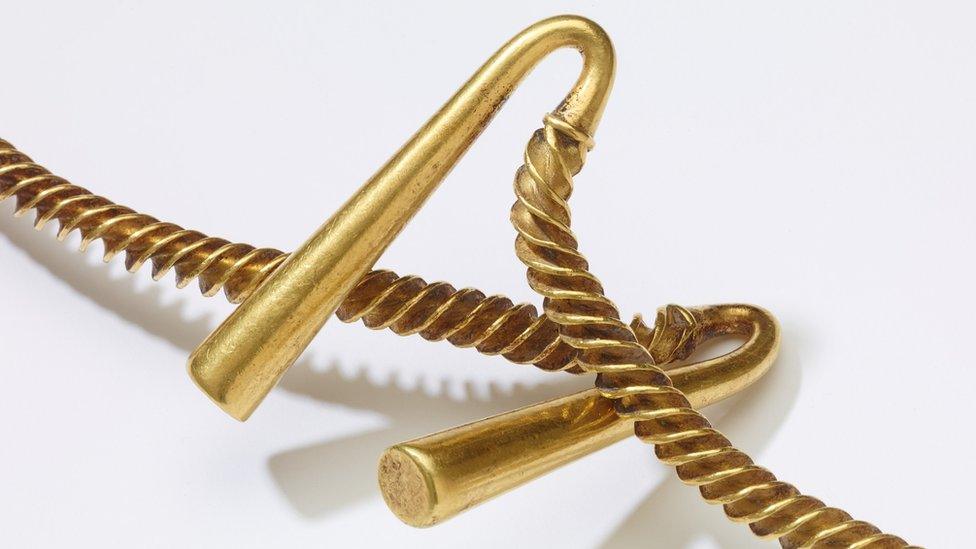
- Published25 September 2017
